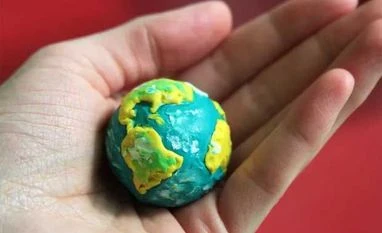Researchers have found that a collision between rocks in space around 470 million years ago greatly influenced the diversity of life on the Earth.
The study, published in the journal Science Reports, found that a 150 km asteroid between Jupiter and Mars was crushed 470 million years ago, and the dust spread throughout the inner solar system consisting of the first four planets.
The researchers, including those from Lund University in Sweden, noted that the blocking effect of the dust partially stopped sunlight from reaching the Earth, leading to an ice age.
The cooling effects of the ice age, according to the researchers, altered global climate trends from a homogeneous one to into one with climate zones - from tropical conditions at the equator to Arctic conditions at the poles.
The researchers said that the ice age eventually caused invertebrates to go into a drive of high diversity as an adaptation.
"It is analogous to standing the middle of your living room and smashing a vacuum cleaner bag, only at a much larger scale", said Birger Schmitz, lead author of the study and professor of geology at Lund University.
The discovery was made using measurements of extraterrestrial helium that was trapped in the petrified sea floor sediments at Kinnekulle in southern Sweden, the study noted.
The researchers reasoned that the space dust was enriched with helium when bombarded by the solar wind on its way to the Earth.
"This result was completely unexpected. We have during the last 25 years leaned against very different hypotheses in terms of what happened. It wasn't until we got the last helium measurements that everything fell into place," said Schmitz.
He added that dust from asteroids had cooled the Earth dramatically at different times, and that the current study could give a more detailed, well-calculated understanding of how this worked.
)
